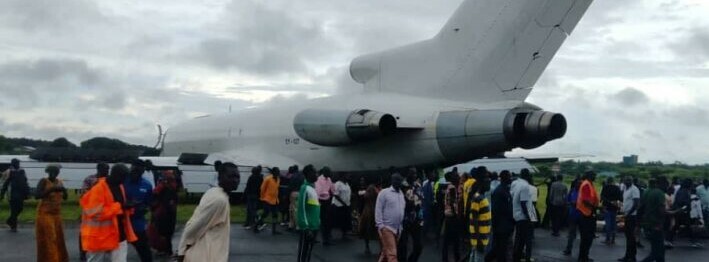South Sudan has received nearly 50,000 people fleeing the deadly conflict in Sudan, mostly South Sudanese, government and humanitarian partners said.
Addressing reporters at the Juba Airport on Tuesday, following an assessment mission to the border town of Renk in Upper Nile State, South Sudan’s Minister of Humanitarian Affairs Albino Akol Atak said around 50,000 people have crossed the border into South Sudan since fighting erupted in Sudan in mid-April.
According to the South Sudanese minister, refugee camps will be established for foreign nationals and that the South Sudanese who returned home will be transported to their areas of origin.
The official pointed out that the returnees and refugees are in a dire humanitarian situation that requires urgent intervention.
“What we got in Joda and Renk was something alarming. The registration at the border of Joda went to more than 20,000 who have crossed the border. Those who are from South Sudan and those from Sudan and other nationalities crossed into that border of Joda,” Atak said.
“We witnessed some injured people who fled the conflict, including elderly people plus women. So the number was very big and the suffering you can even see, but we want to assure the returnees and refugees that our people on the ground are trying their best,” he added.
He said they had identified different nationalities who fled the conflict in Sudan at the border town of Renk, including Somalis, Kenyans, and Nigerians, among others.
For his part, UN Acting Humanitarian Coordinator Peter Van der Auweraert said the world body is working in coordination with the South Sudanese government to set their capacity as quickly as possible, pointing out that the influx of refugees and returnees continues is on the rise.
The UN official applauded South Sudan`s open door policy for allowing refugees of different nationalities to enter the country, noting that South Sudan is showing a good example to the region and the international community.
“I think in that sense South Sudan is setting an example for the region but also for the world showing hospitality for people who are in need and allowing them to enter the country,” Auweraert said.
South Sudan has been in a political transition since 2018. Elections have been delayed by the parties to the peace agreement until December 2024, and more than 7.8 million people in South Sudan are already projected to fall short of their minimum food needs this year.




